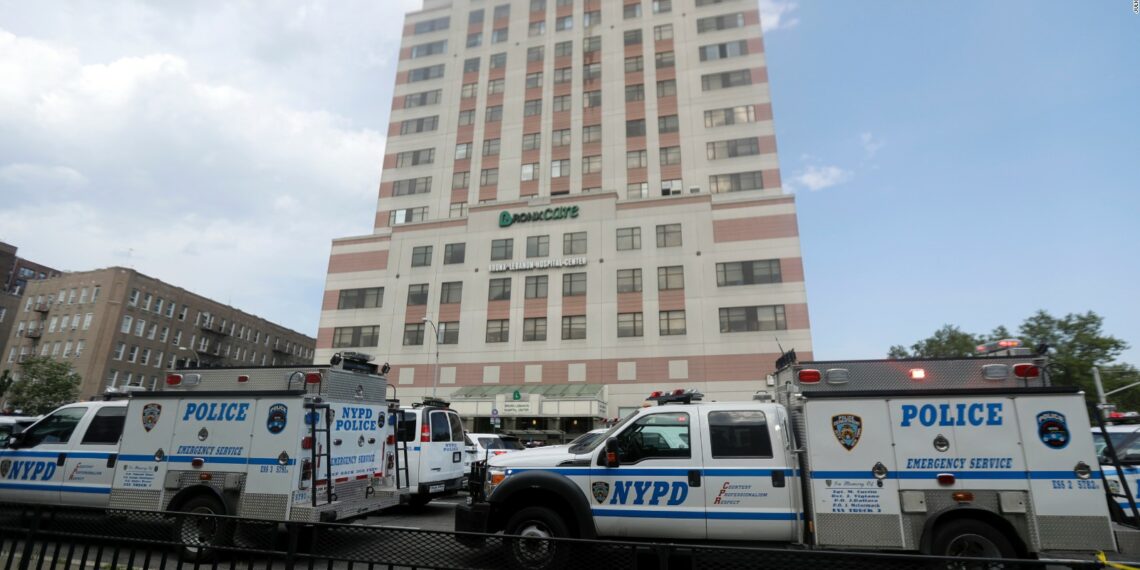The mental health of healthcare personnel often takes a back seat to their work, even though it can directly affect patient care. Mental health is stigmatized and seen as a weakness in the cutthroat environment of modern medicine. Physicians are notorious for their reluctancy to treat personal illness and recognize depression in their colleagues. This may stem from a feeling of obligation to maintain a healthy outward appearance. Much of the physician ego is based on helping others, which creates an internal conflict with asking others for help.
On Friday, June 30th, the medical community faced a great tragedy when Dr. Henry Bello of Bronx-Lebanon Hospital Center opened fire on his co-workers and patients, killing one and injuring six. A man with a complicated past, Bello was arrested in 2004 for sexual abuse and unlawful imprisonment of a 23-year-old woman. According to the New York Times, Bello pleaded guilty to unlawful imprisonment but the charge was later dropped, causing the incident to not appear on a background check. Bello also had a history with with bankruptcy, stints in homeless shelters and accusations of sexual assault and harassment at Bronx-Lebanon. However the media so far has described him merely as a disgruntled employee; a dangerous misnomer since it generalizes Bello and does not bring attention to his unstable tendencies.
The stress medical personnel are put under on a daily basis looks soul crushing when written down: Malpractice suits, dealing with terminally ill patients, being surrounded by death and illness on a daily basis– it is not surprising that mental illness is reportedly higher in the medical field. However, physicians are less likely to seek help than non-medical people. Because of that, the documentation of physician medical health is often under-reported, so the actual numbers of mental illness in the medical field is woefully inaccurate. As well as being self-sabotaging, the act of denying one’s own mental illness creates a bad example for patients to follow.
Every specialty in medicine in stressful. Aside from the normal stresses of patient interaction, doctors have high expectations of themselves and strive for perfection. The stereotype of the type-A perfectionist is often true amongst physicians, which is exacerbated through scrutiny from bureaucratic and personal sources. Strict work rules, government regulations, insurance investigations and overwhelming documentary requirements can become overwhelming when they are applied to issues that are not related to medical practice. Feelings of inadequacy can pile up after dealing with tough cases and unhappy patients. Many medical practitioners are afraid of seeking help because of the harm that it could cause to their reputation. The stigma associated with psychiatric care and physicians is not a new phenomena, but it has become more widespread now that the topic of mental health has become more mainstream. Physicians are not less likely to talk about their mental state out of fear of being seen as weak amongst their peers.
Loss of motivation, increasingly frequent use of personal days, changes in social behavior, fatigue, and inability to complete tasks are all signs of depression. If any of these signs have been noted by a friend, colleague, or family member it is advisable to seek the help of a mental health worker. Most of the time, people have tunnel vision when it comes to the behavior of themselves and coworkers. It is hard to notice the changes as they happen to oneself. Practical techniques for reducing stress like exercise, mindfulness, meditation, hobbies or general personal time simply aren’t an option for resident physicians. Detecting issues of excess stress can be remedied by utilizing anonymous physician health counseling either for direct counseling or referral to psychological and psychiatric resources.
Hospital shootings on television and in other popular media seem outrageous until they actually occur. What was once seen as a method of inciting emotion for ratings is now very real and is something that should be taken seriously. The prevalence of gun violence has turned locations that were previously thought of as “safe” into areas of anxiety and fear, which causes feelings of unease for both the patients and the practitioners. The tragic occurrence at Bronx-Lebanon should serve as a tipping point for recognizing depression and other mental health issues in the medical community.



